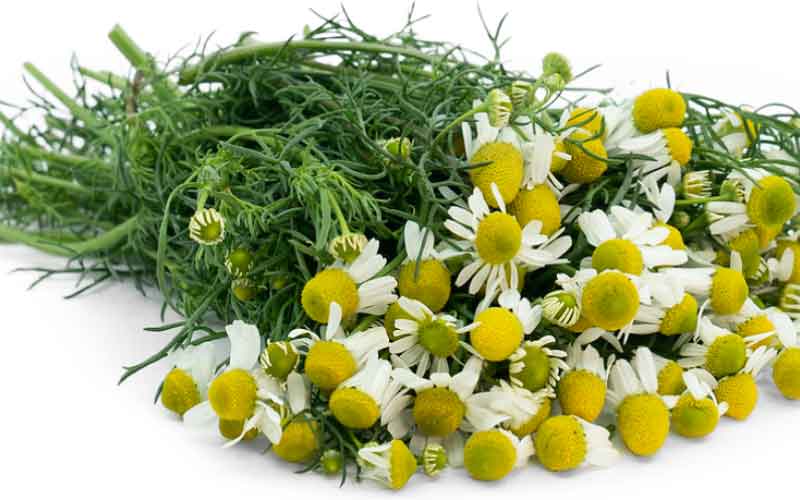Does Chamomile Really Calm Anxiety? Myth or Fact?
Chamomile has long been used as a natural remedy for calming the mind and soothing anxiety. From teas to tinctures, its gentle floral scent is synonymous with relaxation. But does it truly work as an anxiety-relieving herb, or is this just a placebo effect passed down through generations?
The Science Behind Chamomile
Chamomile (Matricaria chamomilla) contains a variety of active compounds, including apigenin, a flavonoid known to bind to certain receptors in the brain. These receptors, specifically GABA-A receptors, play a role in reducing nervous system activity, similar to how pharmaceutical anti-anxiety medications like benzodiazepines work. By binding to these receptors, apigenin can promote a calming effect, making chamomile a potential mild sedative and anxiolytic (anxiety-relieving) herb
Research on Chamomile for Anxiety
Several studies have investigated chamomile’s potential to alleviate anxiety, with promising results. One notable study published in the journal Phytomedicine followed individuals with Generalized Anxiety Disorder (GAD) who were treated with chamomile extract for eight weeks. The results showed a significant reduction in anxiety symptoms compared to the placebo group.
Another study in The Journal of Clinical Psychopharmacology explored the long-term effects of chamomile on anxiety. Over a 38-week period, researchers found that patients who continued to take chamomile had a reduced likelihood of recurring anxiety episodes. This suggests that chamomile may be effective as both a short-term and long-term treatment for mild anxiety.
Chamomile as a Complementary Treatment
While chamomile shows promise, it’s important to note that it may not be as powerful as prescription medications for severe anxiety. However, for those with mild to moderate symptoms, chamomile can serve as a natural, low-risk supplement to other treatments such as therapy or mindfulness practices. Unlike stronger pharmaceuticals, chamomile tends to have fewer side effects, making it a popular choice for individuals seeking gentle, holistic support.
Caution: Individuals sensitive or allergic to plants in the Asteraceae family, such as ragweed, daisies, or marigolds, should avoid chamomile.
How to Use Chamomile
Chamomile can be consumed in a variety of forms. The most common method is as a tea, which is easy to prepare and readily available. Though bear in mind that one teabag from a supermarket brand of chamomile is unlikely to be strong enough to be considered therapeutic. Chamomile extracts, capsules, and tinctures offer more potent doses for those who need a stronger effect. In any form, chamomile is generally safe, though individuals with ragweed allergies should avoid it due to possible cross-reactivity.
Myth or Fact?
Based on the evidence, chamomile’s ability to calm anxiety is indeed fact. For those seeking a gentle, plant-based option to ease tension and promote relaxation, chamomile could be worth a try.

